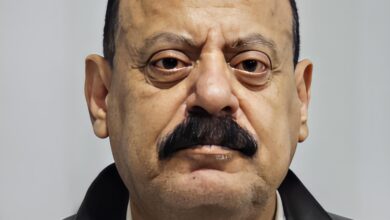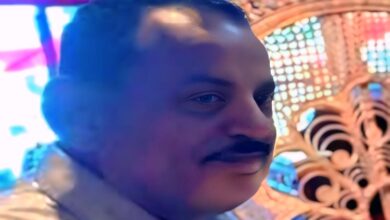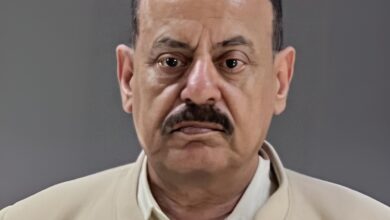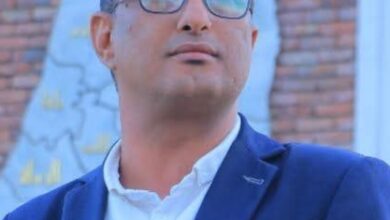The Flood of Hamid
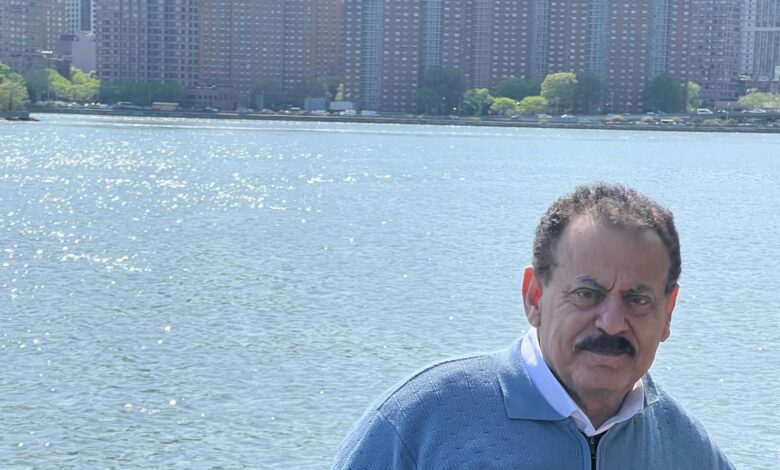
Yemeni mp
Ahmed Saif Hashed
When I was a child, I often wondered why God allows children to die in earthquakes and floods. I would then recall the story of the flood that swept away the good man “Hamid” from the head of Wadi “Sharar,” taking him from us forever.
That flood was named after him, and some even dated events by saying, “So-and-so was born before the flood of Hamid.”
Each morning, as I walked to “Al-Ma’arifa” school in “Thoujan,” I would pass by the same spot, or close to it, where it was said that the flood took Hamid. I felt a deep sadness and regret for him every time I walked by or glanced at that place.
The imagined scene filled a part of my childhood consciousness, stirring my emotions to share in the sorrow and pain, alongside the face of “Hamid,” whom I envisioned but never knew.
* * *
What happened was not a battle; there was no arena or knights. The cunning flood took our dear “Hamid” suddenly and deceitfully. The struggle only began after the flood seized the reins of destiny. The conflict was a final round, ending in pain and sorrow.
I imagined the struggle between the victim, “Hamid,” and the flood that seized him unexpectedly. Before he could catch his breath, it overwhelmed him, intensifying until it claimed him completely. “Hamid” tried to resist the flood as one might resist fate. It dragged him violently, tossing him around, turning him upside down, leaving no chance for escape or combat. It struck him from the first sweep, giving him no time for strategy or attempt. Then it took him far away, engulfed in its depths.
I envisioned how “Hamid” slipped, how the flood swept him away, and how it struck him like a predatory beast. It took him along with his hopes, dreams, and aspirations. There were no trees left, no shells to cling to, no rocks to hinder fate. The flood had spoken its word, and death had claimed him without delay.
I imagined the impact of the news on his family and loved ones—his mother, father, children, wife, and relatives. A grief that would haunt them for a long time, disturbing their sleep whenever they remembered what happened. An unbearable feeling of loss and pain would accompany them whenever his memory or spirit crossed their minds.
“Hamid” was a good man who loved his family, and they loved him back; they could not imagine life without him or the tragedy of his departure. Not long ago, they shared moments with him; then he left, and all that remained was news, regret, and eternal separation.
I often mourned him every morning and evening, despite not knowing him. How much more profound must be the feelings of his family? I was eager to observe the details of the place where “Hamid” last laid his eyes.
I remembered the scene I imagined and saw my classmate Abdu, the son of Hamid, and his brother Muhammad, who became a teacher at the school.
* * *
The story of “Hamid” and his final battle with the flood reminded me of our people’s struggle against the corruption we have been afflicted with, which has struck us deeply, reducing our community to fragments and endless tragedy. It has brought us to the state we witness today.
Today, looting, corruption, and exploitation are more severe than Noah’s flood, more devastating than a tsunami. Some now long for the corruption of times gone by!
We are still trying to survive on a boat or a ship, hoping to escape from the disaster we live in, not knowing how long it will last. There are no mountains or heights here, no hills or trees to protect us from our plight.
We face a tyranny that thrives on death, blood, and massive corruption, sweeping away anyone who crosses its path.
We endure and resist the disaster, waiting for its horror to recede so we can survive and carry the remnants of our homeland to safety or refuge.
These catastrophic wars feed on killing, looting, and destruction, showing no signs of ending except through our own demise or the fading of our awareness into Alzheimer’s and forgetfulness, losing our sense and feeling.
May God have mercy on “Hamid” and envelop him in His vast mercy.
* * *


